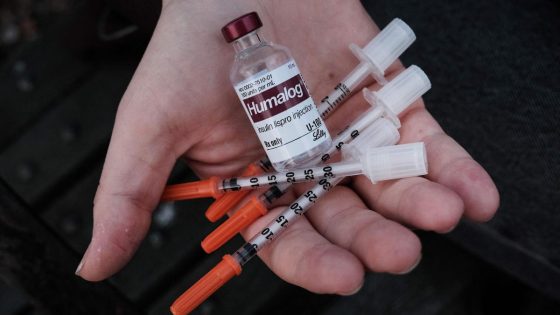Two Chinese swimmers, including one scheduled to compete at the Paris Olympics, failed a doping test in 2022 but were cleared by Chinese authorities, the New York Times reported on Tuesday citing anonymous sources.
The report follows a major dispute around the case of 23 Chinese swimmers who tested positive for trimetazidine (TMZ) at a domestic competition in late 2020 and early 2021 ahead of the Tokyo Games. They were also cleared, with food contamination given as the explanation.
The United States Anti-Doping Agency (USADA) has accused the World Anti-Doping Agency (WADA) of a cover-up. WADA says the criticism is politically motivated.
In the new report, the New York Times said that Chinese authorities concluded that a steroid had been accidentally ingested after the two swimmers ate hamburgers in Beijing. “Trace amounts” were detected, which they said was consistent with food contamination rather than doping.
ALSO READ: Paris 2024 Olympics: China’s Wang and Sun win table tennis mixed doubles gold
The paper said that one of the swimmers was also one of the 23 swimmers.
In a statement in response to the article, WADA said that the latest case was part of a “wider series of cases” also including a shooter and a BMX rider who all tested positive for the steroid metandienone in late 2022 and early 2023.
“Upon notification, the athletes were all immediately provisionally suspended, pending investigation and remained so until late 2023 when the investigation concluded. Therefore, in the case of the two swimmers, they were suspended for more than one year,” the organisation said.
WADA said that the provisional suspension, imposed on November 3, 2022, was “with the view to asserting a four-year period of ineligibility before a CHINADA (China’s Anti-Doping Agency) anti-doping tribunal”.
But when similar cases of the shooter and the BMX rider, neither of which are at the Paris Olympics, emerged, CHINADA conducted an investigation into possible meat contamination.
“The investigation by CHINADA included the testing of hundreds of meat samples from various sources, with dozens revealing positive results for metandienone,” WADA said.
The agency added that CHINADA had also analysed supplements used by the athletes and conducted hair tests — which were negative.
Both swimmers provided negative doping control samples in the days before and after the positive result, added WADA.
“Following its investigation, CHINADA concluded that the four cases were most likely linked to meat contamination and, in late 2023, closed the cases without asserting a violation, with the athletes having remained provisionally suspended throughout that time,” the statement said.
WADA said it “thoroughly” reviewed the cases and decided not to challenge CHINADA’s ruling at the Court of Arbitration for Sport (CAS).
‘Hard-core steroid’
The new case drew another scathing response from USADA, with chief executive Travis Tygart lambasting what he described as “the failed leadership of the anti-doping system”.
Tygart accused China of sweeping “a positive test for a hard-core steroid under the rug”.
“A mountain of evidence shows that the system has failed,” Tygart said in a statement. “WADA has accepted China can play by its own set of rules, and the public is losing faith in the Olympic values.
ALSO READ: Paris 2024 Olympics: The Games will die without young audiences and competitors – IOC
“It must change.”
The Times had reported that a member of the International Testing Agency (ITA), who reviewed the case, argued that World Aquatics should have appealed the Chinese decision to clear the swimmers.
A spokesperson for the sport’s governing body said: “It would not be appropriate for World Aquatics to comment on this case in detail, but World Aquatics can confirm that it never received any recommendation from the ITA to appeal the case.”
The paper cited the ITA as denying they had made such a recommendation.
Source Agencies


